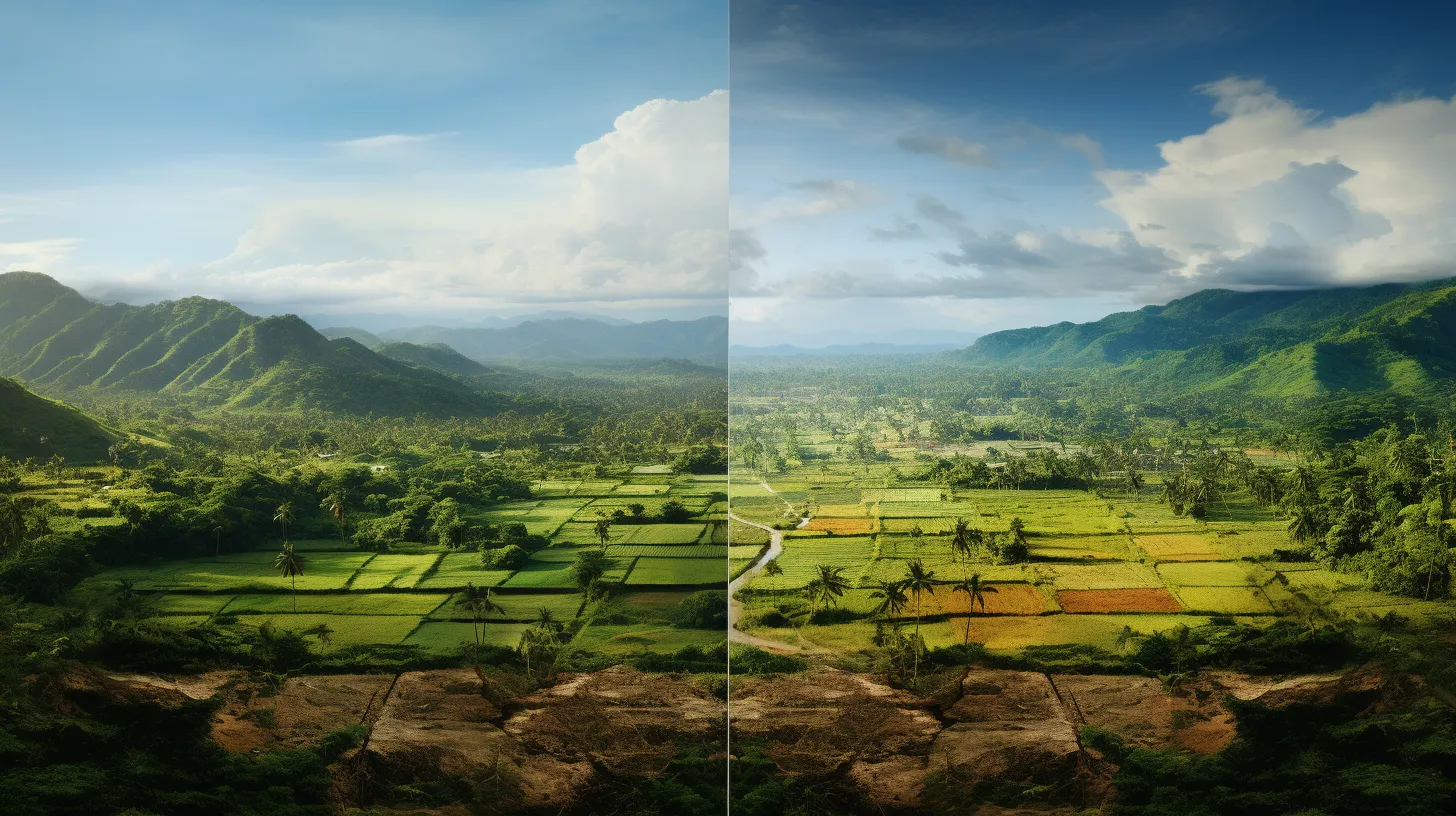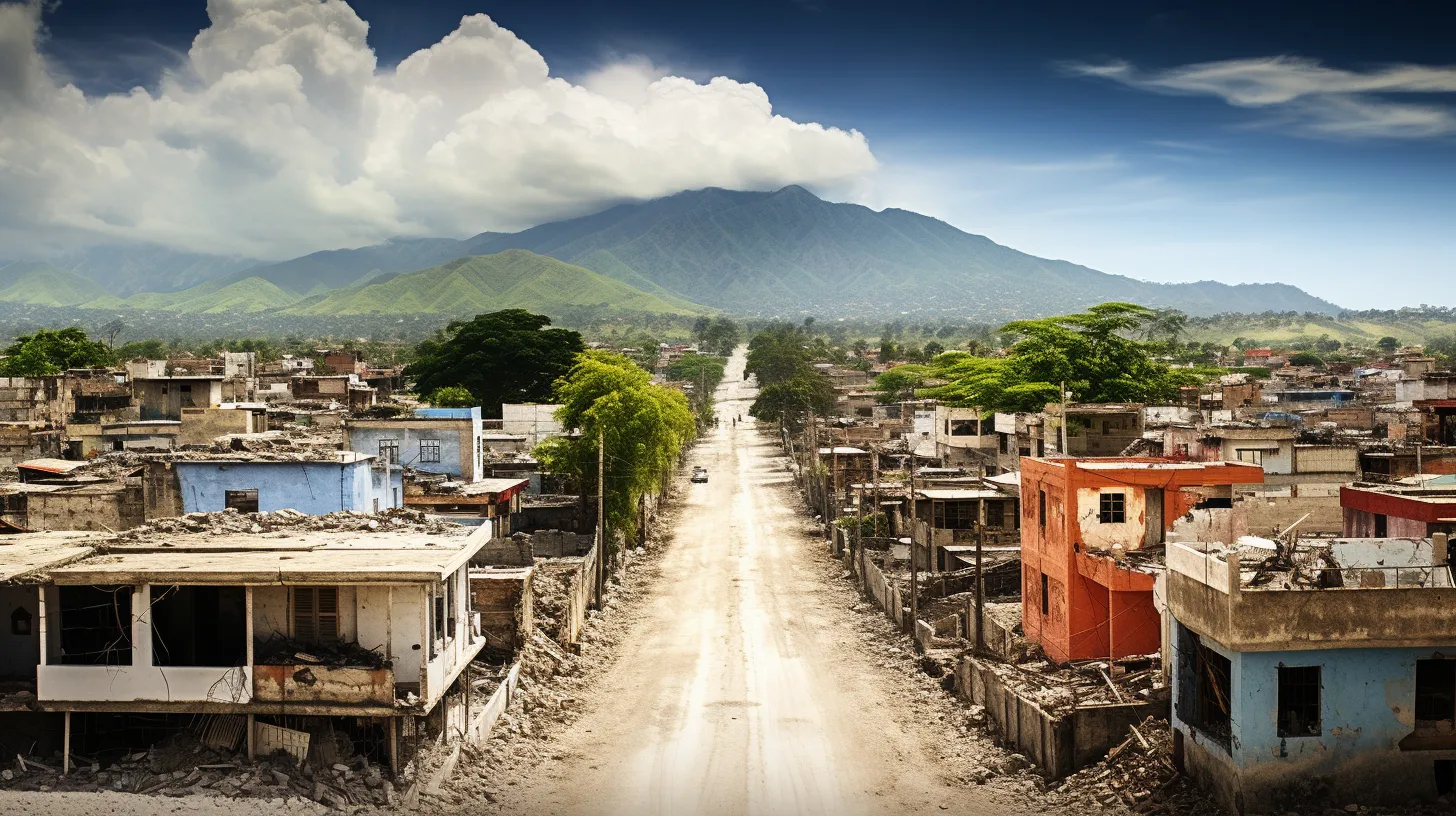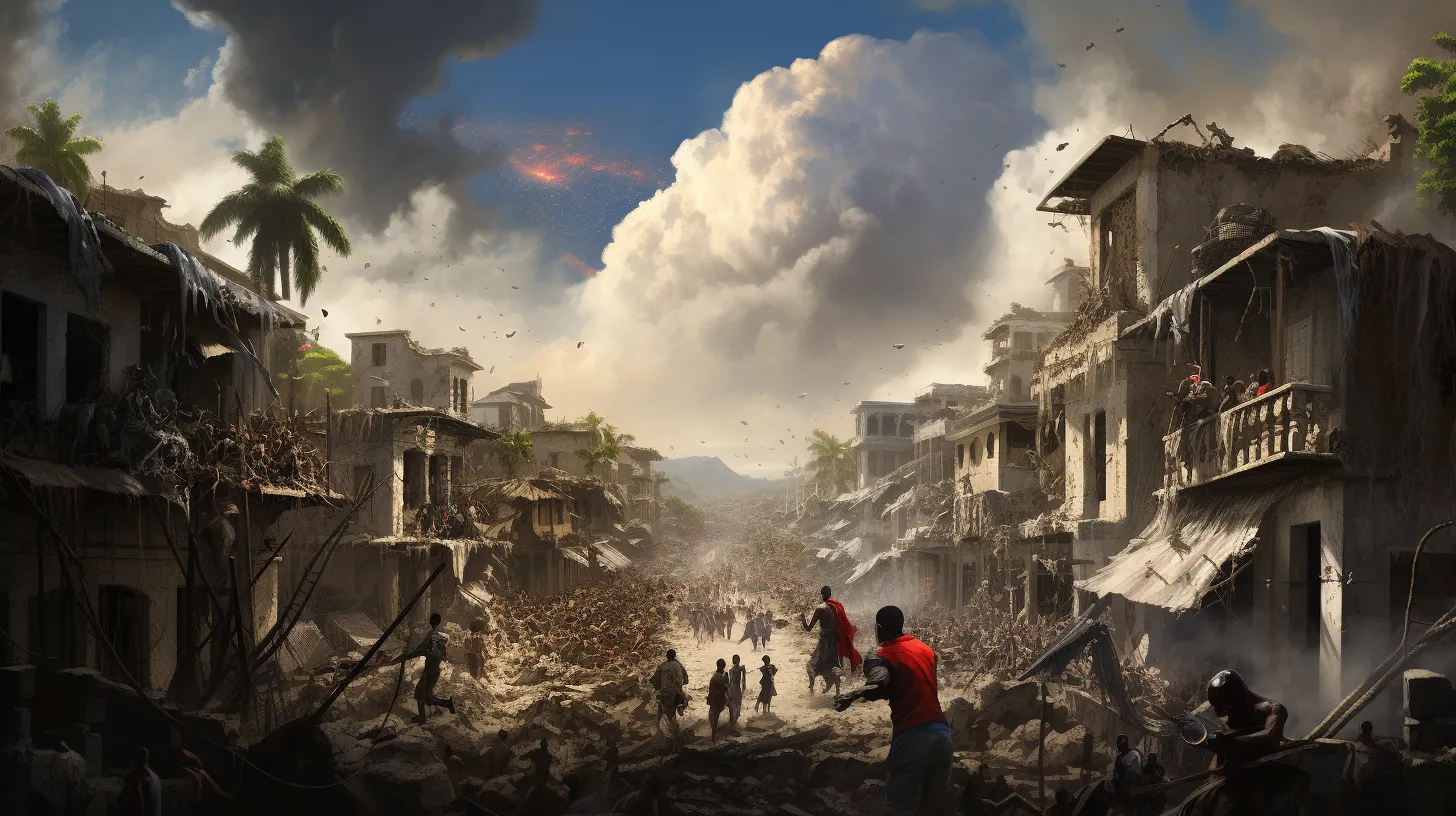The economic disparity between Haiti and the Dominican Republic, despite sharing the same island, can be attributed to a complex interplay of historical, economic, and social factors.
Haiti’s profound poverty in comparison to its neighbor is influenced by a colonial legacy, political instability, social inequality, and international impact. These factors have perpetuated Haiti’s economic challenges.
Additionally, issues such as economic policies and the mismanagement of aid funds have further hindered the country’s development.
This stark contrast in economic status between the two nations highlights the multifaceted nature of the challenges that Haiti faces in its pursuit of economic stability and prosperity.
Historical Factors

The historical factors that have contributed to the economic disparity between Haiti and the Dominican Republic are rooted in their colonial past and the subsequent social and political dynamics that have shaped their development.
Centuries ago, the island was subjected to the rule of the French and Spanish empires, leading to divergent paths for the two nations. Haiti declared independence in 1804, becoming the world’s first sovereign black republic, while the Dominican Republic gained independence in 1844 after years of Haitian occupation.
The deep class, racial, and cultural differences between the two nations have fueled strife, with Haiti being historically exploited by foreign powers, neighbors, and its own rulers. Moreover, Dominicans have historically looked down on Haitians, leading to discrimination and labor exploitation.
These historical factors have significantly contributed to the economic disparity between the two nations.
Political Instability

Political instability in Haiti has been a persistent challenge, affecting the country’s ability to establish and maintain effective governance structures. This instability has hindered economic development and contributed to the nation’s ongoing struggles.
In contrast, the Dominican Republic has also experienced periods of political instability, including military dictatorships. The lack of a stable government and the presence of gangs have contributed to Haiti’s difficulties, while foreign interference and occupation have impacted the political stability of both countries.
These factors have led to significant disparities in economic development between the two nations. Addressing political instability is crucial for Haiti to create a conducive environment for sustainable growth and development.
It requires a concerted effort to establish a stable government, reduce external interference, and address internal security challenges to improve the country’s overall prospects.
Social Inequality

Social inequality in Haiti is starkly evident in the significant disparities in GDP per capita, literacy rates, and healthcare outcomes when compared to the Dominican Republic.
Haiti’s GDP per capita is considerably lower than that of the Dominican Republic, contributing to widespread poverty and limited access to resources. Additionally, Haiti faces challenges in education, with lower literacy rates and higher unemployment, exacerbating social disparities.
Healthcare outcomes further highlight the inequality, as Haiti experiences higher rates of HIV/AIDS and infant mortality compared to the Dominican Republic. These stark differences underscore the deep-rooted social inequality between the two nations.
Historical factors, including colonization and ongoing discrimination, have perpetuated these disparities, impacting the lives of individuals in both Haiti and the Dominican Republic. Addressing these social inequalities is crucial for fostering equitable development and improving the overall well-being of both nations.
Economic Policies

Many economists argue that ineffective economic policies have hindered Haiti’s development compared to the Dominican Republic.
Haiti, widely regarded as the poorest country in the Western Hemisphere, has struggled with unstable governance, corruption, and a lack of coherent economic strategies. International pressure to implement reforms has been met with mixed success, as Haiti has faced challenges in creating a conducive environment for foreign investment and sustainable economic growth.
In contrast, the Dominican Republic has implemented more favorable economic policies, attracting foreign investment and diversifying its economy. Haiti’s economic policies have also been affected by its vulnerability to natural disasters, further impeding its development.
Addressing these policy shortcomings is crucial for Haiti to improve its economic prospects and reduce the disparity with its neighbor, the Dominican Republic.
International Influence

Influenced by historical events and international interventions, Haiti’s economic development has been significantly impacted compared to the Dominican Republic.
The historical division of the island between the French and Spanish empires has left a lasting impact on the social and economic disparities between the two nations.
Furthermore, France’s imposition of a burdensome indemnity on Haiti after independence has contributed to economic struggles, while the encouragement of economic development under Trujillo’s rule in the Dominican Republic has led to divergent paths of prosperity.
International interventions, including discriminatory practices and the U.S.’s approach to Haiti, have also played a role in shaping the economic trajectories of both countries.
Additionally, the economic relationship between Haiti and the Dominican Republic, influenced by their geographic proximity and trade, reflects the disparities in GDP per capita and overall economic development between the two nations.




